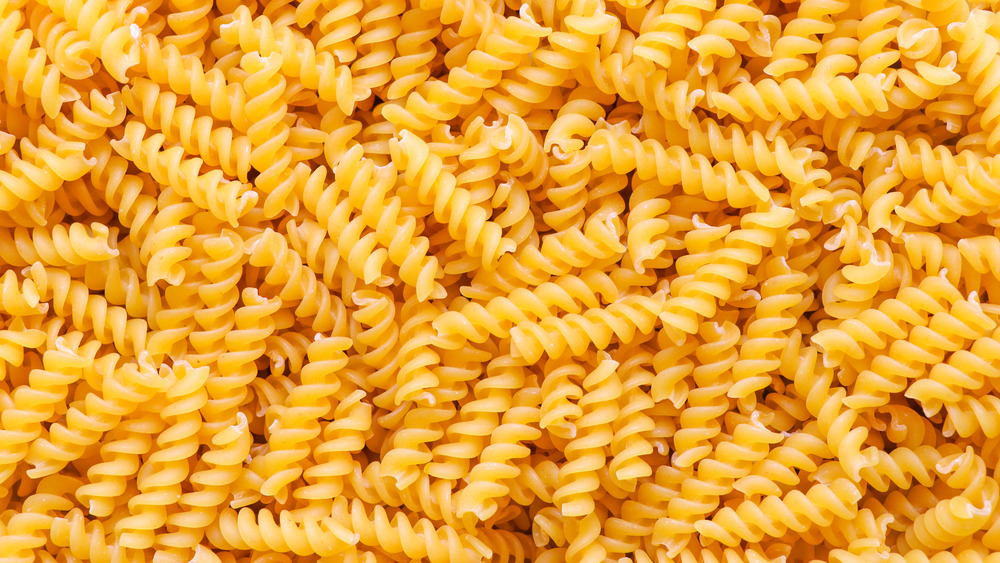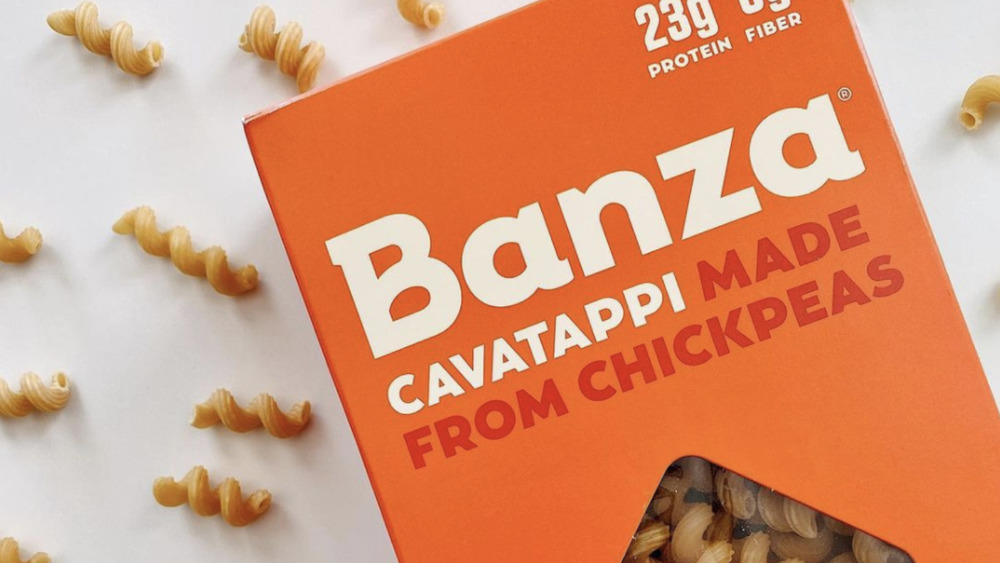The Truth About Chickpea Pasta
Who doesn't love a steaming hot bowl of pasta? It's the ultimate Italian comfort food, whether you're slurping up a massive plate of spaghetti smothered in tomato sauce or chowing down on buttery bowtie noodles sprinkled with Parmesan cheese. However, pasta is hardly a health food, thanks to its sky-high carb count, refined white flour, and little to no protein. But that's all changing.
Enter the trend that is chickpea pasta — i.e. "healthier" pasta — a gluten-free alternative made of chickpea powder. According to Tastewise, chickpea pasta consumption has increased about 11 percent year over year and Well & Good calls chickpeas "the new cauliflower." Thanks to a few nutritional benefits, it's one of the latest food fads that everyone is talking about right now.
But just how healthy is chickpea pasta? Is it actually better for you than regular pasta? After all, it's made up of 60 percent carbohydrates, which is still considerably high in carbs. However, it's where those carbs come from (chickpeas, not white flour) that gives the trendy pasta a few extra points in the health department. Here's why you might want to consider whipping up a bowl of the pea-based noodles for yourself.
Chickpea pasta is better for your gut health
While it may be true that chickpea pasta is hardly a low-carb dish, unlike regular white pasta, it's made of the good kind of carbs: complex carbs. Because they are higher in fiber, they digest slower and help you feel fuller for longer. The average serving of Banza pasta (one of the most popular chickpea pastas on the market) contains 13 grams of fiber compared to just two grams in Barilla white pasta, explains a Business Insider review. The piece also notes that chickpea pasta has about 40 percent fewer net carbs than regular pasta and packs a lot more protein (which also helps you feel more satiated).
Not only are the fiber and complex carbs better for your digestive and gut health, but the fact that chickpea pasta is gluten-free can also make it a more digestion-friendly pick, especially for anyone who has an intolerance or sensitivity to wheat or gluten.

